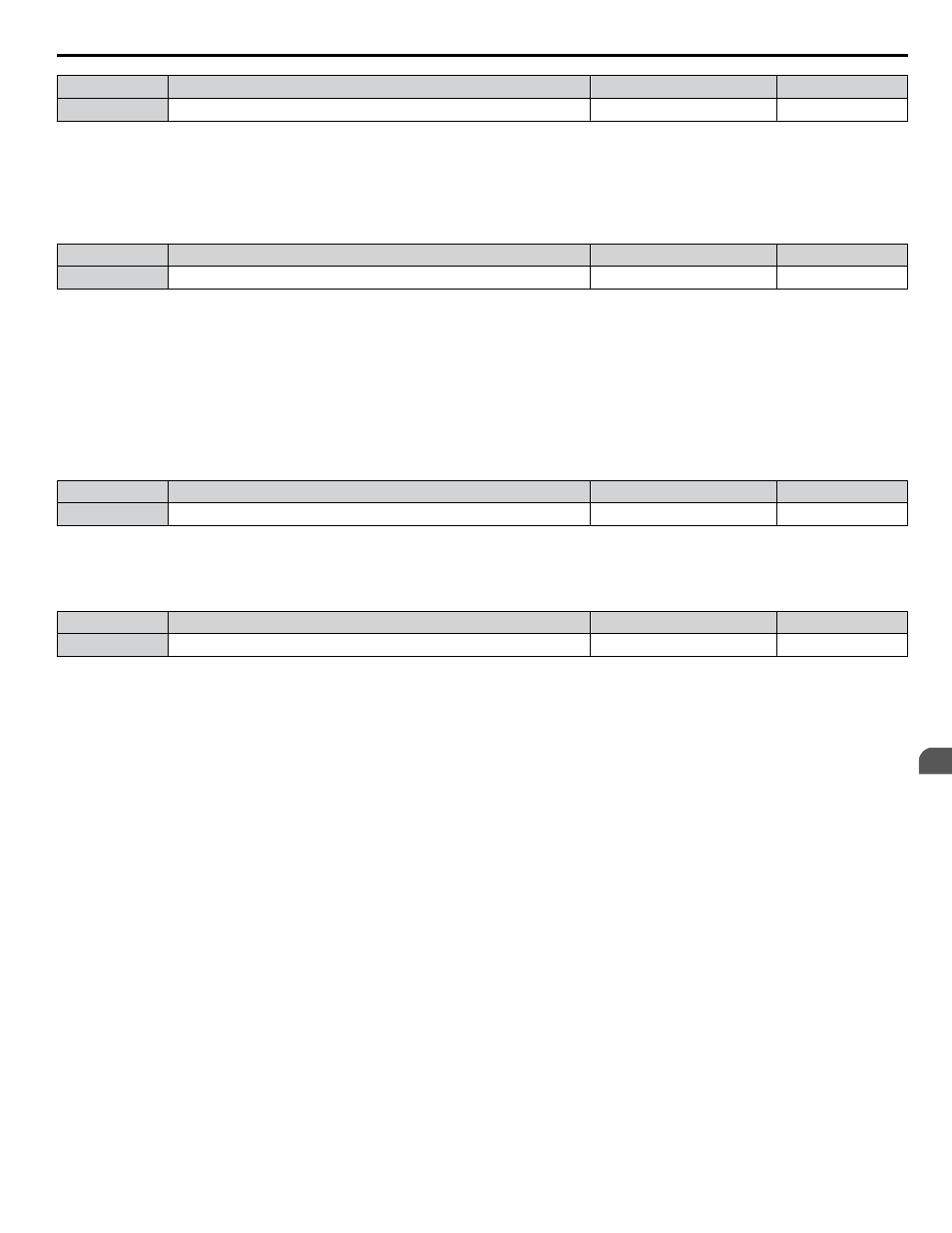Yaskawa Z1000U HVAC Matrix Bypass User Manual
Page 147

No.
Name
Setting Range
Default
b5-08
PID Primary Delay Time Constant
0.00 to 10.00 s
0.00 s
Note:
Useful when there is a fair amount of oscillation or when rigidity is low. Set to a value larger than the cycle of the resonant frequency.
Increasing this time constant may reduce the responsiveness of the drive.
n
b5-09: PID Output Level Selection
Reverses the sign of the PID controller output signal. Normally a positive PID input (feedback smaller than setpoint) leads to
positive PID output.
No.
Parameter Name
Setting Range
Default
b5-09
PID Output Level Selection
0, 1
0
Setting 0: Normal Output
A positive PID input causes an increase in the PID output (direct acting).
Setting 1: Reverse Output
A positive PID input causes a decrease in the PID output (reverse acting).
n
b5-10: PID Output Gain Setting
Applies a gain to the PID output and can be helpful when the PID function is used to trim the frequency reference
(b5-01 = 3).
No.
Name
Setting Range
Default
b5-10
PID Output Gain Setting
0.00 to 25.00
1.00
n
b5-11: PID Output Reverse Selection
Determines whether a negative PID output reverses the direction of drive operation. This parameter has no effect when the
PID function trims the frequency reference (b5-01 = 3) and the PID output will not be limited (same as b5-11 = 1).
No.
Parameter Name
Setting Range
Default
b5-11
PID Output Reverse Selection
0, 1
0
Setting 0: Reverse Disabled
Negative PID output will be limited to 0 and the drive output will be stopped.
Setting 1: Reverse Enabled
Negative PID output will cause the drive to run in the opposite direction.
n
PID Feedback Loss Detection
The PID feedback loss detection function detects broken sensors or broken sensor wiring. It should be used when PID control
is enabled to prevent critical machine conditions (e.g., acceleration to max. frequency) caused by a feedback loss.
Feedback loss can be detected in two ways:
• Feedback Low Detection
Detected when the feedback falls below a certain level for longer than the specified time. This function is set up using
parameters b5-12 to b5-14.
• Feedback High Detection
Detected when the feedback rises above a certain level for longer than the specified time. This function is set up using
parameters b5-12, b5-36, and b5-37.
The following figure illustrates the working principle of feedback loss detection when the feedback signal is too low. Feedback
high detection works in the same way.
5.2 b: Application
YASKAWA SIEP YAIZ1D 01A Z1000U HVAC MATRIX Drive Bypass Technical Manual
147
5
Programming